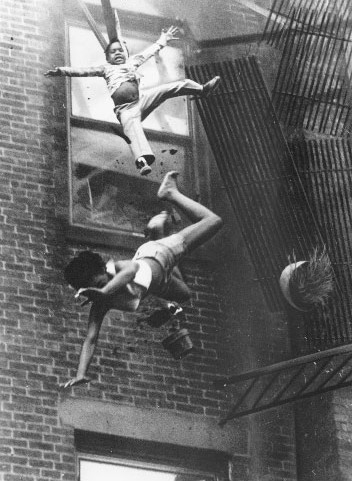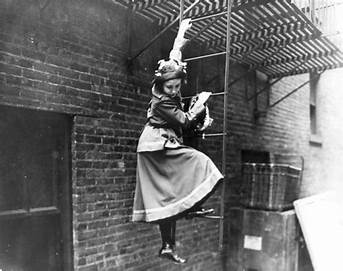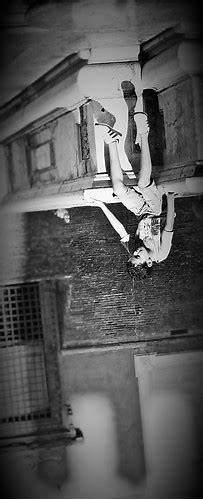Ace of Spades Blog ran this photo as part of a discussion. It struck a chord with me because I recall when it was originally published. A photographer for the Boston Herald won a Pulitzer prize, for the photo. I did a photo search in order to pull up the details. Wikipedia, the lazy man’s reference provided the details, at the link.
https://en.wikipedia.org/wiki/Fire_Escape_Collapse
In case you haven’t used it a photo search takes the selected image a tries to link it back to other instances where the photo has appeared. From that one may identify the the participants, photographer and contest. Not only does the search return the original image but also images that the search engine determines are similar in nature.
Above is the original image. Below are images that the algorithm determined were similar in nature.
Yeah, so what? Back we go. Remember the words of the two greatest investigators ever.
I wouldn’t be inclined to choose any of the photos that the search engine deemed similar in nature. Would you? This exercise should undermine your faith in technology. Machines don’t have an agenda. But the people who program the machines do. The next time you conduct a search on the Internet, understand that the result is not neutral or accurate. It is, incomplete and at worst, highly biased. At best it is only a pointer.
Sir Arthur Conan Doyle never heard of the Internet. However, he anticipated the problems inherent in it more than a 100 years ago.
“I consider that a man’s brain originally is like a little empty attic, and you have to stock it with such furniture as you choose. A fool takes in all the lumber of every sort that he comes across, so that the knowledge which might be useful to him gets crowded out, or at best is jumbled up with a lot of other things, so that he has a difficulty in laying his hands upon it. Now the skillful workman is very careful indeed as to what he takes into his brain-attic. He will have nothing but the tools which may help him in doing his work, but of these he has a large assortment, and all in the most perfect order. It is a mistake to think that that little room has elastic walls and can distend to any extent. Depend upon it there comes a time when for every addition of knowledge you forget something that you knew before. It is of the highest importance, therefore, not to have useless facts elbowing out the useful ones.”
Sherlock Holmes, “A Study in Scarlet”, Sir Arthur Conan Doyle





